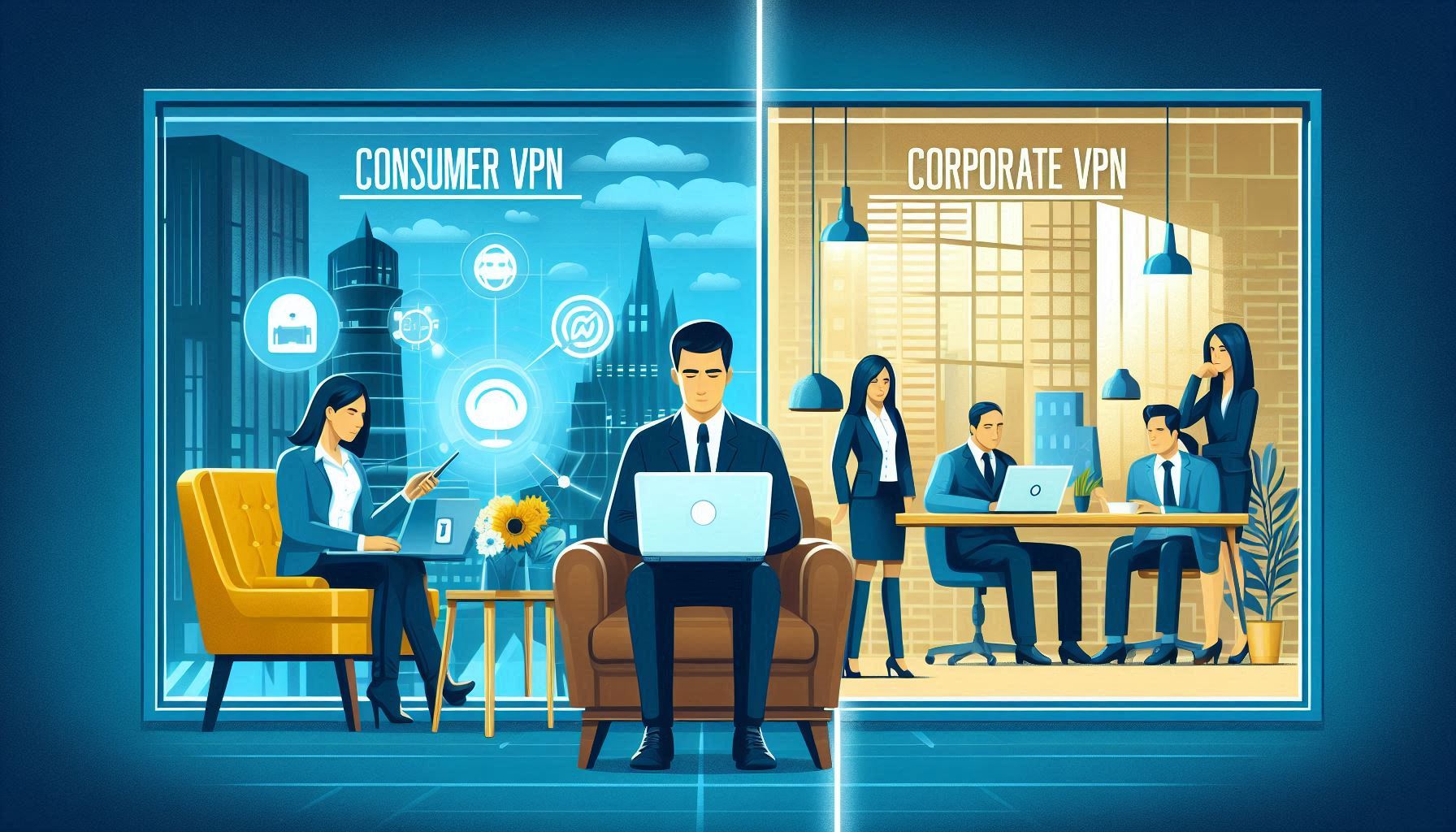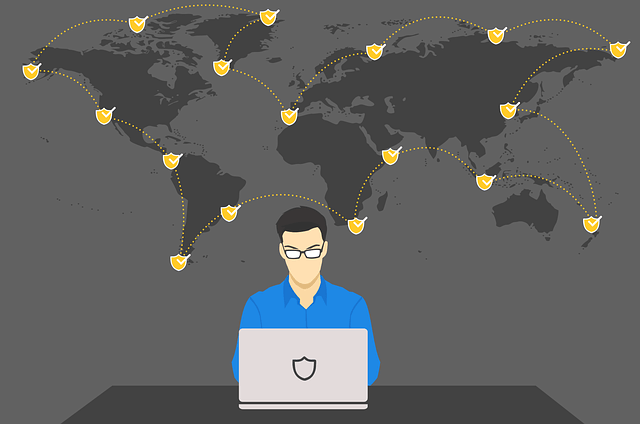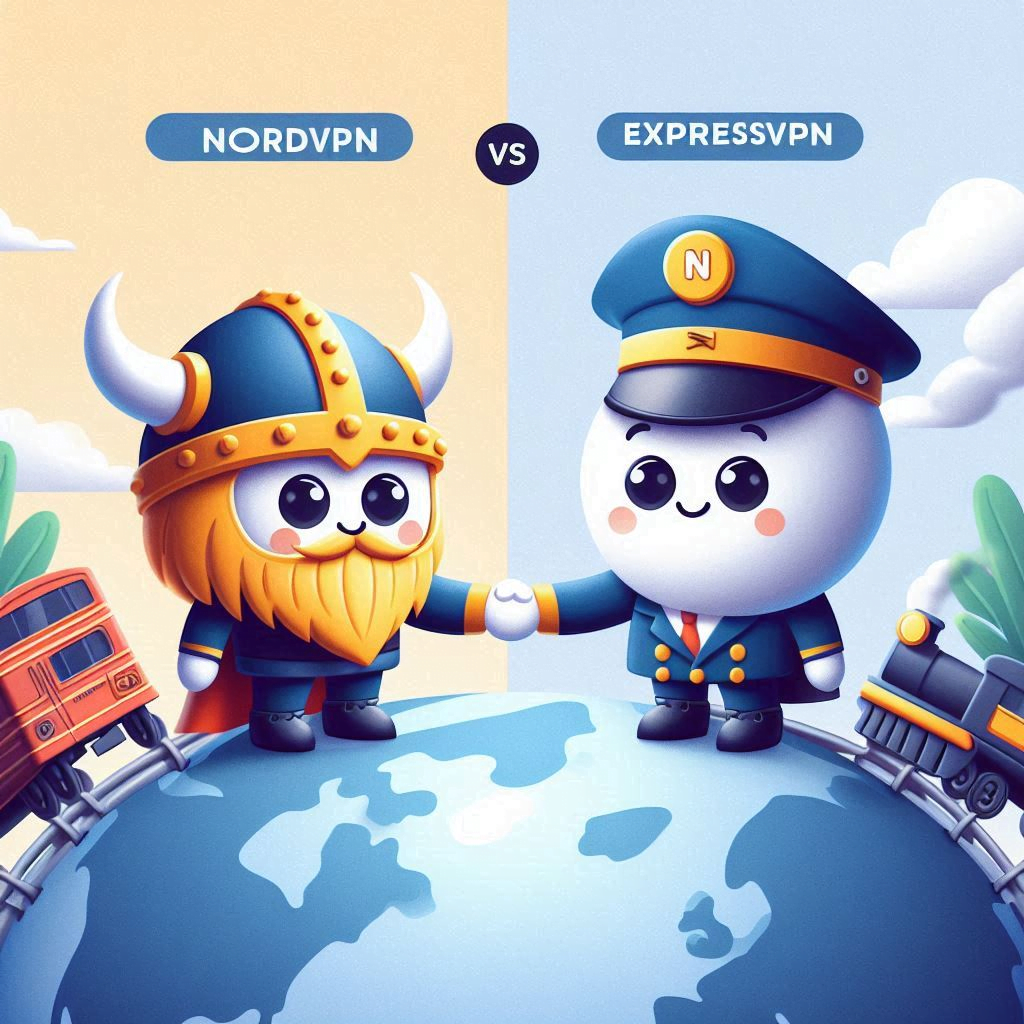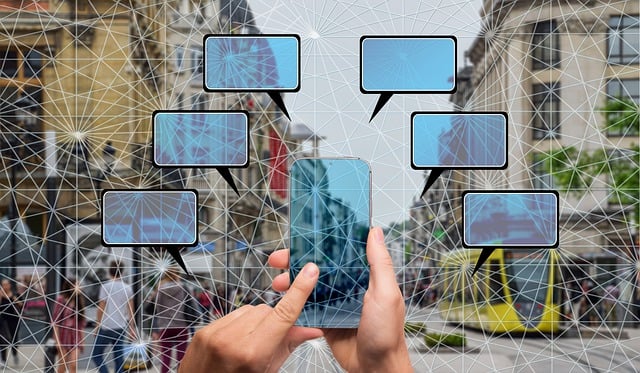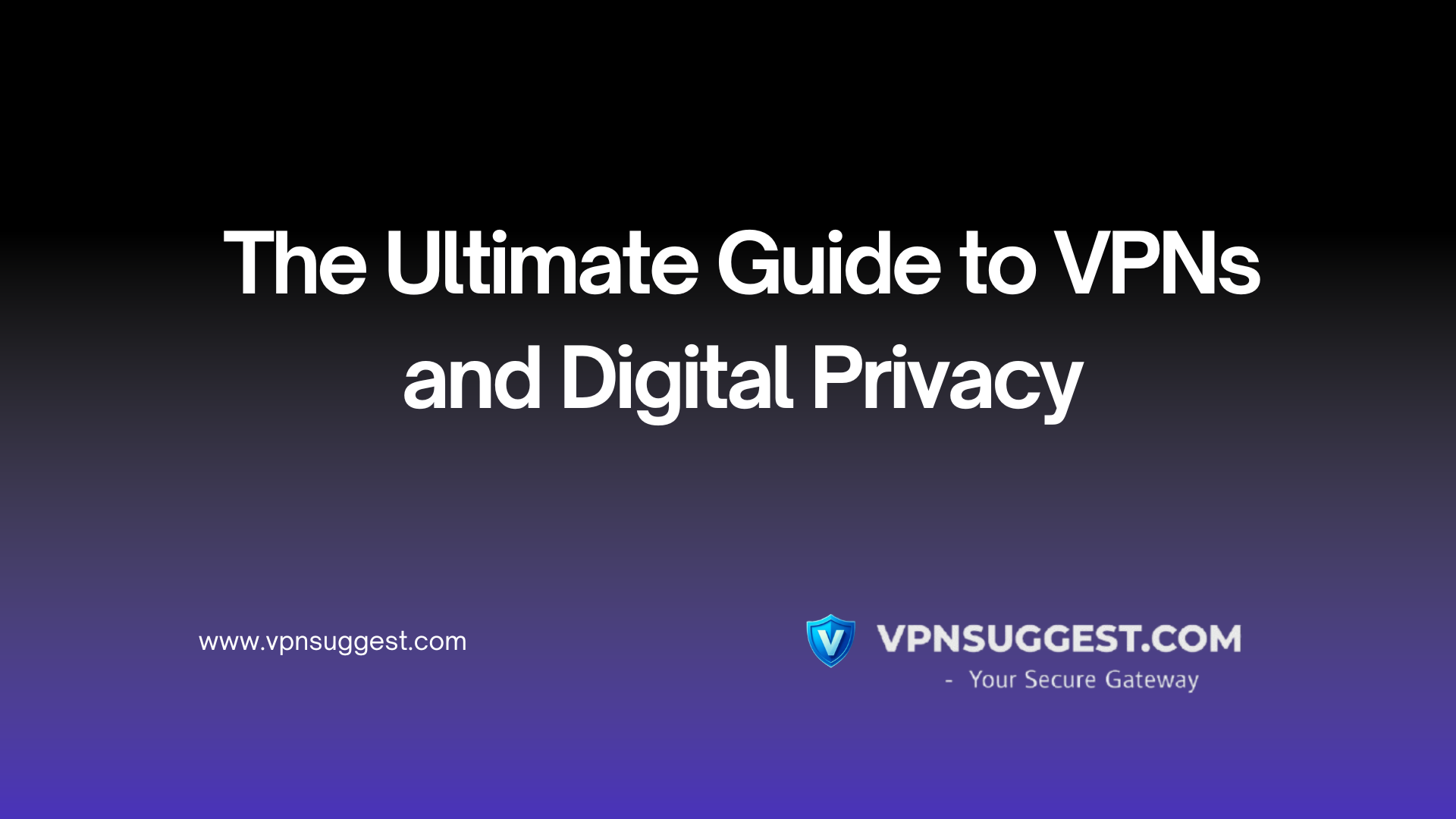How Secure Is a VPN If It Only Encrypts Traffic to the VPN Server?

Virtual Private Networks (VPNs) are frequently hailed as essential tools for internet privacy and security. However, a recurring question is raised: if VPNs only encrypt data traveling from the user’s computer to the VPN server and not back, how can they be genuinely secure? This inquiry explores the core principles of VPN security and functionality. We’ll go into great detail on this subject in this lengthy post, looking at the workings of VPNs, the built-in protection they offer, and the ways in which extra precautions might improve internet safety.
Understanding VPN Encryption Scope
The purpose of a VPN is to establish a safe, encrypted tunnel that connects your device to the VPN server. Your data cannot be intercepted and read by anyone using the same network, including your internet service provider (ISP) or a public Wi-Fi hotspot, thanks to this encryption. However, the encryption offered by the VPN is lost as soon as your communication reaches the VPN server and is routed to its intended online location.
The Role of Encryption in VPN Security
When using unsecure networks, the encryption that exists between your device and the VPN server is essential for protecting your privacy. Several protocols are used in this procedure, including L2TP/IPsec, OpenVPN, and the more recent WireGuard. Your data is encrypted by these protocols, guaranteeing that any information intercepted cannot be decrypted without the right key.
Post-VPN Server Traffic Handling
Your encrypted data is decrypted and forwarded to its destination once it has arrived at the VPN server. The data is no longer shielded by the VPN’s encryption after this. This does not, however, mean that the data is totally exposed. Beyond this point, there are a number of methods and recommended practices that aid in protecting your data.
Mitigating Risks Beyond the VPN Server
Beyond the VPN server, a number of techniques and technologies can be used to guarantee ongoing security and privacy. Here, we’ll examine a few crucial points:
1. HTTPS Encryption
HTTPS (HyperText Transfer Protocol Secure) is one of the most important security features that goes beyond the VPN server. When you visit a website that uses HTTPS, Transport Layer Security (TLS) encrypts the data traveling from your browser to the website server. This adds an extra degree of protection because it means that even if your traffic is decrypted at the VPN server, it is instantly re-encrypted before it reaches the website.
The Mechanics of HTTPS
TLS is used to provide a secure channel between the user’s browser and the web server in order for HTTPS encryption to function. There are multiple steps in this process:
- Handshake: The browser and server exchange cryptographic keys and agree on the encryption methods to use.
- Encryption: Data transmitted between the browser and server is encrypted using symmetric encryption, ensuring that only these two parties can read the data.
- Verification: The server presents a digital certificate, verified by a trusted Certificate Authority (CA), ensuring the server’s identity.
Strong encryption ensures that private information, including financial and login credentials, is safe even after it has passed through the VPN server.
2. Trust in the VPN Provider
The reliability and business practices of the VPN provider have a significant impact on the degree of security that a VPN provides. Reputable VPN companies have rigorous no-log policies, which means they don’t keep track of anything you do online. They also use cutting-edge security methods to guard against hacks and guarantee the confidentiality of any data that passes through their systems.
Choosing a Reputable VPN Provider
When selecting a VPN provider, consider the following factors:
- No-logs policy: Ensure the provider has a strict no-logs policy, ideally audited by independent third parties.
- Jurisdiction: Opt for providers based in privacy-friendly countries that are not part of international surveillance alliances like the Five Eyes.
- Security features: Look for advanced features such as multi-hop connections, kill switch, DNS leak protection, and strong encryption protocols.
- Transparency: Providers that publish regular transparency reports and undergo security audits offer greater assurance of their commitment to privacy.
3. Secure VPN Server Infrastructure
Prominent VPN service companies make large investments to secure their server architecture. This entails employing intrusion detection systems, deploying cutting-edge firewalls, and utilizing dedicated servers with strong physical security measures. By lowering the possibility of eavesdropping or manipulation, these safeguards assist in protecting the data that passes through their servers.
Server Security Measures
To secure their server infrastructure, VPN providers may employ the following measures:
- Dedicated servers: Using dedicated, rather than shared, servers enhances control over security settings and reduces vulnerability.
- Physical security: Ensuring servers are located in secure data centers with controlled access and 24/7 surveillance.
- Firewalls: Implementing advanced firewalls to prevent unauthorized access and mitigate potential attacks.
- Intrusion detection systems: Deploying systems that monitor and respond to suspicious activity in real time.
4. Multi-Hop VPN Configurations
Multi-hop settings, or double VPN, are available from certain VPN providers. With this configuration, before it reaches its destination, your internet traffic is routed through two or more VPN servers located in separate places. Since intercepting the data gets harder and harder with every new hop, this provides an additional degree of security.
Benefits of Multi-Hop VPNs
The multi-hop VPN setup provides several benefits:
- Enhanced anonymity: By routing traffic through multiple servers, it becomes more challenging to trace the origin of the traffic.
- Increased security: Each additional hop adds an extra layer of encryption, complicating potential decryption attempts.
- Geographical flexibility: Multi-hop configurations can help bypass strict censorship and provide access to geo-restricted content by routing traffic through strategically chosen locations.
End-to-End Encryption: Complementary to VPNs
In order to secure data, VPNs must be used in conjunction with end-to-end encryption, or E2EE. Data is securely transferred between end systems via E2EE, preventing access to the encrypted data by any middlemen. E2EE is used by services like email providers (like ProtonMail) and secure messaging apps (like Signal, WhatsApp) to guarantee that only the users who are interacting may access the messages.
The Role of E2EE in Enhancing VPN Security
Your data will always be encrypted when you use a VPN in conjunction with services that use E2EE. To ensure complete security, your messages will stay encrypted all the way from your smartphone to the recipient’s device if you use an E2EE messaging app while connected to a VPN.
Examples of E2EE Applications
- Messaging Apps: Secure messaging platforms like Signal, WhatsApp, and Telegram use E2EE to protect messages, calls, and shared media.
- Email Services: Providers like ProtonMail and Tutanota offer E2EE to ensure email content remains private and secure.
- File Storage: Services such as Tresorit and Sync.com use E2EE to protect files stored and shared on their platforms.
Additional Security Practices
There are a few other measures you can take to improve your online security in addition to using a VPN:
1. Regular Software Updates
It’s important to keep your programs and software updated. Security patches that resolve flaws that an attacker could exploit are frequently included in software upgrades. Security breaches are less likely if you make sure your operating system, browser, and other security software are up to date.
The Importance of Timely Updates
- Patch vulnerabilities: Updates address known security flaws that could be exploited by attackers.
- Improve functionality: Updates often bring performance improvements and new features that enhance user experience.
- Compatibility: Keeping software current ensures compatibility with other applications and services, maintaining seamless operation.
2. Strong Passwords and Multi-Factor Authentication
You can stop unwanted access by using strong, one-of-a-kind passwords for all of your internet accounts. By requiring a second form of verification, such a text message or authentication app, to access your accounts, multi-factor authentication (MFA) offers an additional layer of security.
Creating Strong Passwords
- Length: Aim for passwords that are at least 12-16 characters long.
- Complexity: Use a mix of uppercase and lowercase letters, numbers, and special characters.
- Uniqueness: Avoid using the same password across multiple accounts.
Implementing Multi-Factor Authentication
- Authentication apps: Use apps like Google Authenticator or Authy for generating time-based one-time passwords (TOTP).
- Hardware tokens: Devices like YubiKey provide physical authentication factors.
- Biometric verification: Employ fingerprint, facial recognition, or other biometric methods for added security.
3. Awareness and Vigilance
The likelihood of being a target of an attack can be greatly decreased by being aware of potential security risks and maintaining excellent cyber hygiene. This include avoiding phishing efforts, avoiding dubious links, and routinely keeping an eye out for strange activity on your internet accounts.
Practicing Cyber Hygiene
- Phishing awareness: Be cautious of unsolicited emails, messages, and links that ask for personal information.
- Safe browsing: Use reputable security extensions and avoid downloading files or software from untrusted sources.
- Account monitoring: Regularly review your online accounts for any unauthorized activity and promptly report suspicious behavior.
The Role of VPN in Different Use Cases
VPNs offer substantial advantages in terms of security and privacy for a range of applications. We’ll look at a few typical situations where using a VPN improves online safety.
1. Public Wi-Fi Security
Using a VPN to secure your connection on public Wi-Fi networks is one of the main applications for these devices. Airports, hotels, and other public Wi-Fi hotspots are common targets for hackers due to their high security risks. Your data is encrypted on these networks by a VPN, keeping hackers from accessing it.
Risks of Public Wi-Fi
- Man-in-the-middle attacks: Attackers can intercept and manipulate communications between your device and the internet.
- Rogue hotspots: Malicious individuals may set up fake Wi-Fi networks to capture sensitive information.
- Unencrypted networks: Many public Wi-Fi networks lack encryption, leaving data transmissions vulnerable.
2. Bypassing Geo-Restrictions and Censorship
VPNs are also used to get over internet censorship and geo-restrictions. You can access stuff that might be blocked in your area by setting up a VPN server in a different location. Although it doesn’t always improve security, this gives users more privacy and flexibility when using the internet.
Benefits of Bypassing Restrictions
- Access to content: VPNs enable access to streaming services, websites, and other content that may be restricted in certain regions.
- Circumventing censorship: VPNs help users bypass government-imposed censorship, promoting free access to information.
- Privacy protection: By masking your IP address, VPNs prevent websites and services from tracking your location and activities.
3. Protecting Against ISP Snooping
Your online activity can be tracked by Internet service providers (ISPs), which may then sell this information to marketers. By hiding your online actions from your ISP, a VPN adds an extra degree of anonymity.
ISP Data Collection Practices
- Browsing history: ISPs can track the websites you visit and build profiles based on your browsing habits.
- Traffic analysis: ISPs may analyze your data usage patterns to infer your online activities.
- Selling data: Some ISPs monetize user data by selling it to third-party advertisers and marketers.
Common Myths and Misconceptions About VPN Security
There are still a number of false beliefs and misconceptions regarding the security and efficacy of VPNs, despite the substantial advantages they provide. Here, we’ll dispel a few widespread myths:
1. VPNs Make You Completely Anonymous
VPNs improve privacy by encrypting your data and hiding your IP address, but they do not grant you total anonymity. Your online activities are still visible to your VPN provider, therefore it’s important to pick a reliable service with a rigorous no-logs policy.
Limitations of VPN Anonymity
- Provider visibility: VPN providers have access to your connection logs and can potentially monitor your activities.
- Additional tracking: Websites, advertisers, and other entities can still track you through cookies, browser fingerprinting, and other techniques.
- Legal obligations: VPN providers may be required to comply with legal requests for user data in certain jurisdictions.
2. All VPNs Offer the Same Level of Security
Purchasing a reliable paid VPN service is crucial for guaranteeing strong security and privacy because not all VPNs are made equal. Free VPNs, for instance, may offer less solid security features and might even sell your data to third parties.
Differences in VPN Quality
- Encryption standards: Paid VPNs typically offer stronger encryption protocols and more secure implementations.
- Server infrastructure: Reputable providers invest in secure, high-performance servers and maintain better uptime and reliability.
- Privacy practices: Trusted VPN providers adhere to strict no-logs policies and undergo regular security audits.
3. VPNs Protect Against All Types of Cyber Threats
VPNs are not a panacea for cybersecurity issues. They do not provide defense against malware, phishing scams, or other forms of cyberthreats; instead, they only guard against particular risks, including data interception on public networks. For complete protection, use a VPN in addition to other security precautions like antivirus software and safe browsing techniques.
Complementary Security Measures
- Antivirus software: Install and regularly update antivirus programs to protect against malware and other threats.
- Phishing protection: Use email filters, browser extensions, and caution to avoid falling victim to phishing scams.
- Secure browsing: Enable security features in your browser and use privacy-focused tools to enhance online safety.
The Evolution of VPN Technology
As VPN technology advances, fresh protocols and features are added to improve security, usability, and performance. We’ll look at a few recent developments in the VPN market here:
1. Advances in VPN Protocols
Comparing newer protocols like WireGuard to older ones like PPTP and L2TP, the former offer better security, efficiency, and performance. For example, WireGuard is more secure and easier to audit since it combines modern cryptographic algorithms and a reduced codebase.
Benefits of WireGuard
- Enhanced security: WireGuard uses modern cryptographic algorithms that provide robust security.
- Performance: The streamlined codebase of WireGuard results in faster connection speeds and lower latency.
- Simplicity: WireGuard’s simpler design makes it easier to configure, audit, and maintain, reducing the risk of vulnerabilities.
2. Integration with Other Security Tools
To offer a more complete security solution, contemporary VPN services frequently integrate with other security tools including firewall features, ad blockers, and anti-malware software. This integration makes it easier for people to safely navigate the internet.
Comprehensive Security Suites
- Ad blockers: Block intrusive and potentially malicious ads to enhance privacy and browsing experience.
- Anti-malware: Protect against malware, spyware, and other malicious software.
- Firewalls: Control and monitor network traffic to prevent unauthorized access and attacks.
3. VPNs for IoT Devices
Securing IoT devices has grown more crucial as the Internet of Things (IoT) expands. Certain VPN service providers provide solutions specifically designed to make sure that Internet of Things devices may connect to the internet safely.
Challenges of IoT Security
- Device diversity: Standardized security measures are difficult to implement since IoT devices have vastly disparate hardware, software, and connection.
- Resource constraints: The low processing power and memory of many IoT devices can make it difficult to add strong security features.
- Exposure to threats: IoT devices are susceptible to a range of cyberthreats, such as botnets and remote vulnerabilities, since they frequently function in unmonitored settings.
4. Decentralized VPNs
By doing away with centralized control, decentralized virtual private networks, or dVPNs, are an emerging technology that promises to increase security and privacy. Peer-to-peer networks are used by dVPNs to disperse traffic rather than depending on a single supplier.
Advantages of dVPNs
- Enhanced privacy: By decentralizing the network, dVPNs reduce the risk of data collection and surveillance by a single entity.
- Resilience: Distributed networks can be more resilient to censorship and shutdown attempts.
- Community-driven: dVPNs often operate on community-driven models, promoting transparency and user control.
Conclusion
Although it’s true that a VPN encrypts just data traveling from your computer to the VPN server, this does not negate a VPN’s security advantages. A vital part of your online security arsenal is the encryption that the VPN offers, which shields your data from several risks, particularly while using unsafe networks. Additionally, possible vulnerabilities that may develop once the communication leaves the VPN server can be mitigated by using HTTPS, end-to-end encryption, and other security measures.
You may greatly improve your online privacy and security by being aware of the benefits and limitations of virtual private network (VPN) security, selecting a reliable VPN service, and implementing additional security measures. Although no single technology can guarantee total protection, a well-rounded strategy that incorporates a VPN can significantly improve the security of your data.
FAQs
1. Does a VPN make me completely anonymous online?
No, a VPN does not make you totally anonymous even though it hides your IP address and encrypts your traffic. You should select a VPN company with a rigorous no-logs policy since otherwise, your provider can still see everything you do online.
2. Are free VPNs safe to use?
Free VPNs frequently have restrictions and could be unsafe. They might use worse encryption, operate at slower speeds, and sell your information to outside parties. For more protection and privacy, it is advised to spend money on a reliable paid VPN service.
3. Can a VPN protect me from all cyber threats?
No, a VPN does not provide protection against malware, phishing assaults, or other forms of cyberthreats. It only guards against specific threats, including data interception on public networks. For complete protection, a VPN must be used in addition to other security precautions.
4. What is the difference between VPN encryption and end-to-end encryption?
The connection between your device and the VPN server is secure thanks to VPN encryption. Contrarily, end-to-end encryption protects data while it travels between end systems, preventing access to the encrypted material by any third parties. For increased security, both kinds of encryption can be applied simultaneously.
5. How can I ensure my VPN provider is trustworthy?
Select a VPN company who upholds a rigorous no-logs policy, has open and honest privacy policies, and has received favorable feedback from reliable sources. Choosing providers with headquarters in privacy-friendly jurisdictions is also advantageous.
Loading newsletter form...

